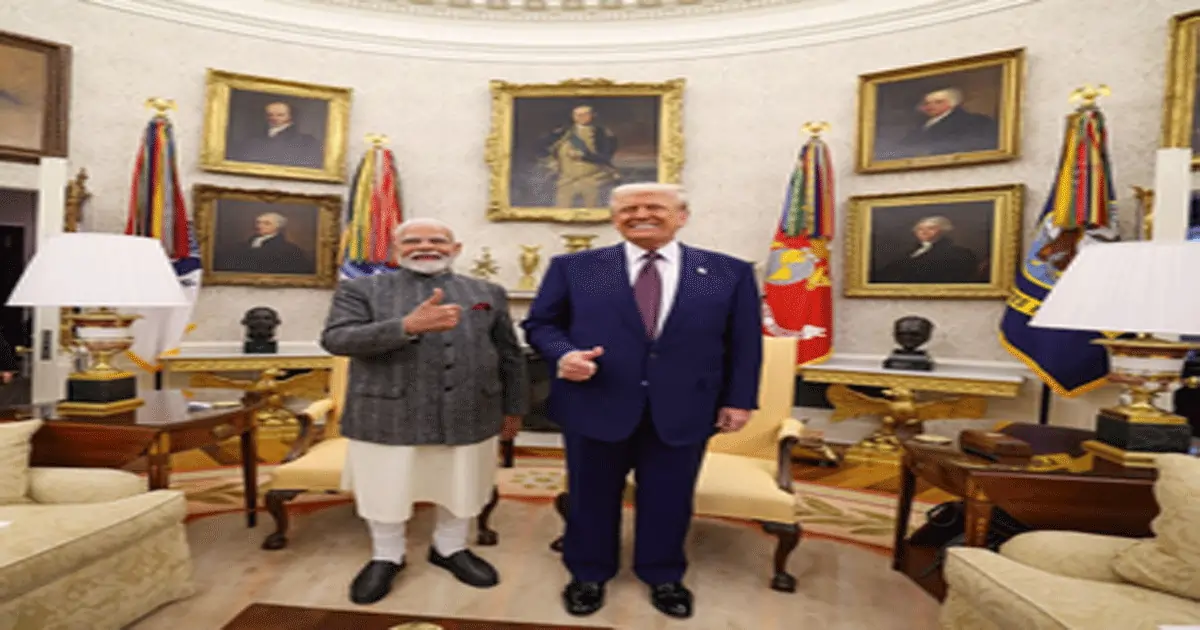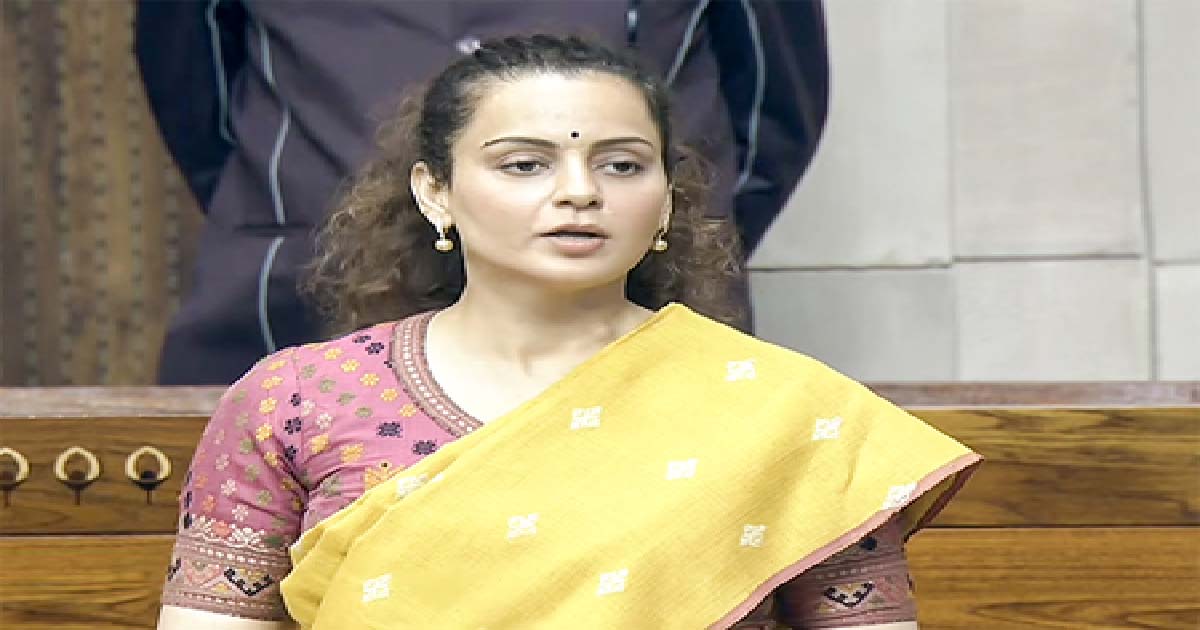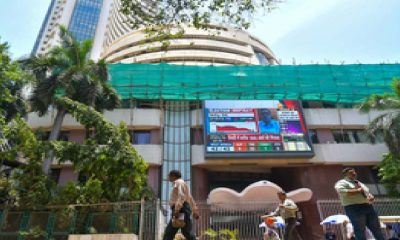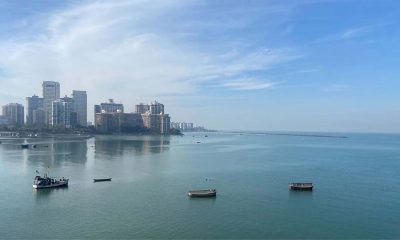International News
AI, trade, defence, energy, cooperation: All that PM Modi and Trump discussed

New Delhi, Feb 14: In a significant reaffirmation of their partnership, Prime Minister Narendra Modi and US President Donald Trump highlighted the robust India-US Comprehensive Global Strategic Partnership, rooted in mutual trust and shared democratic values.
During their high-profile meeting in Washington, the leaders emphasised their commitment to freedom, the rule of law, human rights, and pluralism, signalling a strong and vibrant alliance between their nations as per the press release from the Prime Minister’s office.
Prime Minister Modi and President Trump during their recent meeting launched a new initiative — the “US-India COMPACT (Catalysing Opportunities for Military Partnership, Accelerated Commerce & Technology) for the 21st Century” – to drive transformative change across key pillars of cooperation.
“Under this initiative, they committed to a results-driven agenda with initial outcomes this year to demonstrate the level of trust for a mutually beneficial partnership,” said the press release.
Defence
The leaders reaffirmed their unwavering commitment to a dynamic defence partnership spanning multiple domains. To advance defence ties further, the leaders announced plans to sign this year a new ten-year Framework for the ‘US-India Major Defense Partnership’ in the 21st Century.
The leaders welcomed the significant integration of US-origin defence items into India’s inventory to date, including C‑130J Super Hercules, C‑17 Globemaster III, P‑8I Poseidon aircraft; CH‑47F Chinooks, MH‑60R Seahawks, and AH‑64E Apaches; Harpoon anti-ship missiles; M777 howitzers; and MQ‑9Bs. The leaders determined that the US would expand defence sales and co-production with India to strengthen interoperability and defence industrial cooperation.
They also announced plans to pursue this year new procurements and co-production arrangements for “Javelin” Anti-Tank Guided Missiles and “Stryker” Infantry Combat Vehicles in India to rapidly meet India’s defence requirements expecting completion of procurement for six additional P-8I Maritime Patrol aircraft to enhance India’s maritime surveillance reach in the Indian Ocean Region following agreement on sale terms.
Recognising that India is a Major Defence Partner with Strategic Trade Authorization-1 (STA‑1) authorization and a key Quad partner, the US and India will review their respective arms transfer regulations, including International Traffic in Arms Regulations (ITAR), to streamline defence trade, technology exchange and maintenance, spare supplies and in-country repair and overhaul of US-provided defence systems.
The leaders also urged the commencement of negotiations this year for a Reciprocal Defence Procurement (RDP) agreement, aimed at better aligning their procurement systems and facilitating the mutual supply of defence goods and services. They committed to accelerating cooperation in defence technology across various domains, including space, air defence, missile systems, maritime operations, and undersea technologies. Additionally, the US announced a review of its policy regarding the release of fifth-generation fighter jets and undersea systems to India.
Building on the US-India Roadmap for Defence Industrial Cooperation and recognising the rising importance of autonomous systems, the leaders announced a new initiative – the Autonomous Systems Industry Alliance (ASIA) – to scale industry partnerships and production in the Indo-Pacific.
The leaders welcomed a new partnership between ‘Anduril Industries and Mahindra Group’ on advanced autonomous technologies to co-develop and co-produce state-of-the-art maritime systems and advanced AI-enabled counter Unmanned Aerial Systems (UAS) to strengthen regional security, and between L3 Harris and Bharat Electronics for co-development of active towed array systems.
The leaders also pledged to elevate military cooperation across all domains – air, land, sea, space, and cyberspace – through enhanced training, exercises, and operations, incorporating the latest technologies. The leaders welcomed the forthcoming “Tiger Triumph” tri-service exercise (first inaugurated in 2019) with a larger scale and complexity to be hosted in India.
Finally, the leaders committed to breaking new ground to support and sustain the overseas deployments of the US and Indian militaries in the Indo-Pacific, including enhanced logistics and intelligence sharing, as well as arrangements to improve force mobility for joint humanitarian and disaster relief operations along with other exchanges and security cooperation engagements.
Trade and investments
The leaders agreed to enhance trade and investment to improve prosperity for their citizens, strengthen their nations, foster innovation in their economies, and create more resilient supply chains. They committed to deepening the US-India trade relationship to promote growth that ensures fairness, enhances national security, and generates job opportunities. To achieve this, they established an ambitious target for bilateral trade, called “Mission 500,” which aims to more than double total bilateral trade to $500 billion by 2030.
Recognising that this level of ambition would require new, fair-trade terms, the leaders announced plans to negotiate the first tranche of a mutually beneficial, multi-sector Bilateral Trade Agreement (BTA) by the fall of 2025. The leaders committed to designate senior representatives to advance these negotiations and to ensure that the trade relationship fully reflects the aspirations of the COMPACT.
To advance this innovative, wide-ranging BTA, the US and India will take an integrated approach to strengthen and deepen bilateral trade across the goods and services sector, and will work towards increasing market access, reducing tariff and non-tariff barriers, and deepening supply chain integration.
The leaders welcomed early steps to demonstrate a mutual commitment to address bilateral trade barriers. The US welcomed India’s recent measures to lower tariffs on US products of interest in the areas of bourbon, motorcycles, ICT products and metals, as well as measures to enhance market access for US agricultural products.
India also expressed appreciation for US measures taken to enhance exports of Indian mangoes and pomegranates to the US. Both sides also pledged to collaborate to enhance bilateral trade by increasing US exports of industrial goods to India and Indian exports of labour-intensive manufactured products to the US. The two sides will also work together to increase trade in agricultural goods.
Finally, the leaders committed to driving opportunities for US and Indian companies to make greenfield investments in high-value industries in each other’s countries.
In this regard, the leaders welcomed ongoing investments by Indian companies worth approximately $7.35 billion, such as those by Hindalco’s Novelis in finished aluminium goods at their state-of-the-art facilities in Alabama and Kentucky; JSW in steel manufacturing operations at Texas and Ohio; Epsilon Advanced Materials in the manufacture of critical battery materials in North Carolina; and Jubilant Pharma in the manufacture of injectables in Washington. These investments support over 3,000 high-quality jobs for local families.
Energy Security
The leaders underscored the importance of US-India collaboration to ensure energy affordability, reliability, availability and stable energy markets. Realising the consequential role of the US and India, as leading producers and consumers, in driving the global energy landscape, the leaders re-committed to the US-India Energy Security Partnership, including in oil, gas, and civil nuclear energy.
The leaders underscored the importance of enhancing the production of hydrocarbons to ensure better global energy prices and secure affordable and reliable energy access for their citizens. The leaders also underscored the value of strategic petroleum reserves to preserve economic stability during crises and resolved to work with key partners to expand strategic oil reserve arrangements.
In this context, the US side affirmed its firm support for India to join the International Energy Agency as a full member.
The leaders reaffirmed their commitment to increase energy trade, as part of efforts to ensure energy security and to establish the US as a leading supplier of crude oil and petroleum products and liquified natural gas to India.
The leaders announced their commitment to fully realise the US-India 123 Civil Nuclear Agreement by moving forward with plans to work together to build US-designed nuclear reactors in India through large-scale localisation and possible technology transfer. Both sides welcomed the recent Budget announcement by the Government of India to take up amendments to the Atomic Energy Act and the Civil Liability for Nuclear Damage Act (CLNDA) for nuclear reactors and further decided to establish bilateral arrangements under CLNDA, that would address the issue of civil liability and facilitate the collaboration of Indian and US industry in the production and deployment of nuclear reactors.
Technology and Innovation
The leaders announced the launch of the US-India TRUST (“Transforming the Relationship Utilizing Strategic Technology”) initiative, which will catalyse government-to-government, academia and private sector collaboration to promote the application of critical and emerging technologies in areas like defence, artificial intelligence, semiconductors, quantum, biotechnology, energy and space while encouraging the use of verified technology vendors and ensuring sensitive technologies are protected.
As a central pillar of the “TRUST” initiative, the leaders committed to work with US and Indian private industry to put forward a US-India Roadmap on Accelerating AI Infrastructure by the end of the year, identifying constraints to financing, building, powering, and connecting large-scale US-origin AI infrastructure in India with milestones and future actions.
Two nations will work together to enable industry partnerships and investments in next-generation data centres, cooperation on development and access to compute and processors for AI, innovations in AI models and building AI applications for solving societal challenges while addressing the protections and controls necessary to protect these technologies and reduce regulatory barriers.
The leaders announced the launch of INDUS Innovation, a new innovation bridge modelled after the successful INDUS-X platform, that will advance US-India industry and academic partnerships and foster investments in space, energy, and other emerging technologies to maintain US and India leadership in innovation and to meet the needs of the 21st century. The leaders also reinforced their commitment to the INDUS-X initiative, which facilitates partnerships between US and Indian defence companies, investors and universities to produce critical capability for our militaries, and welcomed the next summit in 2025.
Recognising the strategic importance of critical minerals for emerging technologies and advanced manufacturing, India and the US will accelerate collaboration in research and development and promote investment across the entire critical mineral value chain, as well as through the Mineral Security Partnership, of which both the US and India are members. Both countries have committed to intensifying efforts to deepen cooperation in the exploration, beneficiation, and processing as well as recycling technologies of critical minerals. To this end, the leaders announced the launch of the Strategic Mineral Recovery initiative, a new US-India program to recover and process critical minerals from heavy industries like aluminium, coal mining, oil and gas.
The leaders hailed 2025 as a pioneering year for US-India civil space cooperation, with plans for a NASA-ISRO effort through AXIOM to bring the first Indian astronaut to the International Space Station (ISS), and early launch of the joint “NISAR” mission, the first of its kind to systematically map changes to the Earth’s surface using dual radars.
The leaders called for more collaboration in space exploration, including on long-duration human spaceflight missions, spaceflight safety and sharing of expertise and professional exchanges in emerging areas, including planetary protection.
The leaders underscored the value of deepening ties between the US and Indian scientific research communities, announcing a new partnership between the US National Science Foundation and the Indian Anusandhan National Research Foundation in researching critical and emerging technologies. This partnership builds on ongoing collaboration between the US National Science Foundation and several Indian science agencies to enable joint research in the areas of semiconductors, connected vehicles, machine learning, next-generation telecommunications, intelligent transportation systems, and future biomanufacturing.
The leaders determined that their governments redouble efforts to address export controls, enhance high-technology commerce, and reduce barriers to technology transfer between our two countries while addressing technology security.
Multilateral Cooperation
The leaders emphasised that a strong partnership between the US and India is crucial for ensuring a free, open, peaceful, and prosperous Indo-Pacific region. As partners in the Quad, they reiterated that this collaboration is founded on several key principles: the importance of ASEAN’s central role; adherence to international law and good governance; support for the safety and freedom of navigation, overflight, and other lawful uses of the seas; the promotion of unimpeded lawful commerce; and the encouragement of peaceful resolutions to maritime disputes in line with international law.
PM Modi looks forward to hosting President Trump in New Delhi for the Quad Leaders’ Summit, ahead of which the leaders will activate new Quad initiatives on shared airlift capacity to support civilian response to natural disasters and maritime patrols to improve interoperability.
The leaders resolved to increase cooperation, enhance diplomatic consultations, and increase tangible collaboration with partners in the Middle East. The leaders plan to convene partners from the India-Middle East-Europe Corridor and the I2U2 Group within the next six months to announce new initiatives in 2025.
The US appreciates India’s role as a developmental, humanitarian assistance and net security provider in the Indian Ocean Region. In this context, the leaders committed to deepening bilateral dialogue and cooperation across the vast Indian Ocean region and launched the Indian Ocean Strategic Venture, a new bilateral, whole-of-government forum to advance coordinated investments in economic connectivity and commerce.
Supporting greater Indian Ocean connectivity, the leaders also welcomed Meta’s announcement of a multi-billion, multi-year investment in an undersea cable project that will begin work this year and ultimately stretch over 50,000 km to connect five continents and strengthen global digital highways in the Indian Ocean region and beyond. India intends to invest in the maintenance, repair and financing of undersea cables in the Indian Ocean, using trusted vendors.
The leaders recognised the need to build new plurilateral anchor partnerships in the Western Indian Ocean, Middle East, and Indo-Pacific to grow relationships, commerce and cooperation across defence, technology, energy and critical minerals.
The leaders also resolved to advance military cooperation in multinational settings to advance global peace and security. The leaders applauded India’s decision to take on a future leadership role in the Combined Maritime Forces naval task force to help secure sea lanes in the Arabian Sea.
The leaders reaffirmed that the global scourge of terrorism must be fought and terrorist safe havens eliminated from every corner of the world. They committed to strengthen cooperation against terrorist threats from groups, including Al-Qa’ida, ISIS, Jaish-e Mohammad, and Lashkar-e-Tayyiba to prevent heinous acts like the attacks in Mumbai on 26/11 and the Abbey Gate bombing in Afghanistan on August 26, 2021.
Recognising a shared desire to bring to justice those who would harm our citizens, the US announced that the extradition to India of Tahawwur Rana has been approved.
The leaders further called on Pakistan to expeditiously bring to justice the perpetrators of the 26/11 Mumbai, and Pathankot attacks and ensure that its territory is not used to carry out cross-border terrorist attacks. The leaders also pledged to work together to prevent the proliferation of weapons of mass destruction and their delivery systems and to deny access to such weapons to terrorists and non-state actors.
People to People Cooperation
US President Trump and PM Modi noted the importance of advancing the people-to-people ties between the two countries. They noted that more than 3,00,000 strong Indian student communities contribute over $8 billion annually to the US economy and helped create several direct and indirect jobs.
They recognised that the talent flow and movement of students, researchers and employees, has mutually benefitted both countries.
Both leaders emphasised that the evolution of the world into a global workplace calls for putting in place innovative, mutually advantageous and secure mobility frameworks.
The leaders also committed to strengthening law enforcement cooperation to take decisive action against illegal immigration networks, organised crime syndicates, including narco-terrorists human and arms traffickers, as well as other elements who threaten public and diplomatic safety and security, and the sovereignty and territorial integrity of both nations.
US President Trump and PM Modi committed to maintaining strong engagement between our governments, industries, and academic institutions. They aim to achieve an enduring partnership between India and the US that meets the aspirations of both nations for a bright and prosperous future, contributes to the global good, and supports a free and open Indo-Pacific region.
Business
India-Russia friendship steady like pole star amid global uncertainty: PM Modi

New Delhi, Dec 5: Hailing India-Russia ties, Prime Minister Narendra Modi on Friday said that the friendship between the two countries has remained like a pole star amidst the ups and downs faced by the world in the past 80 years.
While making a joint press statement with Russian President Vladimir Putin following their talks at the Hyderabad House in New Delhi on Friday, PM Modi said that the ties between two nations have stood the test of time and thanked Putin for his friendship and unwavering commitment to India while recalling the efforts made by the Russian leadership to elevate bilateral ties.
“Today, I am delighted to welcome President Putin to the 23rd India-Russia Summit today. His visit comes at a time when our bilateral relations are experiencing several historic milestones. 25 years back, President Putin laid the foundation for our strategic partnership. 15 years ago, in 2010, our partnership was granted the status of a Special Privileged Strategic Partnership. For the past two and a half decades, he (President Putin) has nurtured this relationship with his leadership and vision.
“His (President Putin) leadership, under all circumstances, has elevated our ties to new heights. I express my heartfelt gratitude to President Putin, my friend, for this deep friendship and unwavering commitment to India. The world has seen many ups and downs over the past eight decades. Humanity has faced many challenges and crises and amidst all this, the India-Russia friendship has remained like a pole star. This relationship, founded on mutual respect and deep trust, has always stood the test of time,” he added.
Recalling recent heinous terror attacks in both countries, PM Modi said that India and Russia have stood together in the fight against terrorism.
“Today we also discussed regional and global issues. India and Russia have long cooperated shoulder to shoulder in the fight against terrorism. Whether it’s the terrorist attack in Pahalgam or the cowardly attack on Crocus City Hall — the root of all these incidents is the same. India firmly believes that terrorism is a direct attack on the values of humanity and global unity against it (terrorism) is our greatest strength.”
PM Modi announced that India and Russia will cooperate to train Indian seafarers in polar waters. “We will now cooperate to train Indian seafarers in polar waters. This will not only strengthen our cooperation in the Arctic, but will also create new employment opportunities for India’s youth.”
Reiterating India’s stance on Ukraine conflict, he said, “India has advocated for peace in Ukraine from the very beginning. We welcome all efforts to find a peaceful and lasting solution to this issue. India has always been ready to contribute and will continue to do so.”
PM Modi also termed energy security as a strong and important pillar of India-Russia partnership. He stated that cooperation between India and Russia in civil nuclear energy has been crucial in realising shared clean energy priorities.
“Energy security has been a strong and important pillar of the India-Russia partnership. Our decades-old cooperation in civil nuclear energy has been crucial in realising our shared clean energy priorities. We will continue this win-win cooperation. Our cooperation in critical minerals is crucial to ensuring secure and diversified supply chains across the world,” stated PM Modi.
Earlier, taking the India-Russia Special and Privileged Partnership ahead, PM Modi warmly welcomed President Putin at the Hyderabad House to participate in the 23rd India-Russia Annual Summit.
With both countries sharing a longstanding and time-tested bond, the two leaders are holding comprehensive and detailed discussions aimed at further strengthening the bilateral relations.
International News
‘Govt follows protocol’: BJP respond after Rahul Gandhi remarks on Oppn-Putin meeting

New Delhi, Dec 4: After Congress MP Rahul Gandhi alleged that the Centre has been advising foreign delegations against meeting or interacting with the Leader of the Opposition (LoP) – a practice he said was followed during previous UPA and NDA regimes, ruling party leaders on Thursday rejected the claim, asserting that the “government follows due protocol” in all matters.
The startling charge by Rahul Gandhi, while speaking to reporters outside Parliament, comes hours ahead of Russian President Vladimir Putin’s two-day visit to India. His remarks are set to raise eyebrows in the political corridors and also set the stage for heated sparring between the BJP and Congress.
Rahul Gandhi said, “Meetings with the LOP take place with delegations coming from outside. It has been a long-held tradition and has always been done this way,” he said, while citing instances during Manmohan Singh and Atal Bihari Vajpayee governments.”
Speaking to Media, BJP MP Kangana Ranaut said, “These decisions are made by the government. Atal ji was a national asset, and the entire country was proud of him. He was a great patriot. I don’t know why Rahul Gandhi is not being allowed, but in my opinion, his commitment to the nation is questionable. His role in creating unrest and trying to divide the country raises doubts about his intentions. And if Rahul Gandhi is comparing himself to Atal ji, then I would suggest he join the BJP — only then could he become like him.”
BJP MP Bhim Singh said, “Why would the government stop him? He only creates chaos and does not speak where he is supposed to speak.”
Echoing a similar stance, BJP MP Brij Lal added, “The government follows protocol, and work will be carried out accordingly. Rahul Gandhi is only making this political.”
JD(U) leader K. C. Tyagi clarified, “The government does not decide such protocols. Visiting heads of state themselves decide whom they wish to meet.”
Union Minister Ramdas Athawale added, “Foreign leaders visit on the invitation of the ruling party or government. If President Putin wishes, Rahul Gandhi, as LoP, can meet him. The government has no role in that.”
International News
Trump says Putin ‘would like to end war’ with Ukraine

Washington, Dec 4: US President Donald Trump said Russian President Vladimir Putin “would like to end the war” in Ukraine, citing what he described as a “very good meeting” between Putin and two close Trump allies, Jared Kushner and Steve Witkoff, in Moscow.
Trump told reporters at the White House on Wednesday (local time) that he had spoken with Kushner and Witkoff following their talks with Putin. “Their impression was that he would like to see the war ended,” Trump said. “I think he’d like to get back to a more normal life. I think he’d like to be trading with the United States of America, frankly, instead of losing thousands of soldiers a week.”
Trump added, “I thought they had a very good meeting yesterday with President Putin. We’ll see what happens. It’s a war that should never have been started. It’s a war if I were president… that war would have never happened.”
He also reiterated his longstanding claim that the conflict would not have erupted if he had been in office. “If I were president, no war would have ever happened. They would have had 100 per cent of their territory. Nothing would have happened,” he said.
Trump described the battlefield toll as catastrophic. “Think of this — last month, 27,000 soldiers… mostly young soldiers died last month; in one month,” he said. “That’s the only reason I’m trying to help.”
He also said the US was no longer directly financing Ukraine’s war effort, telling reporters, “We’re not spending any money in the war, we’re selling to NATO. We’re not being ripped off like we were under Biden.”
Asked about Kremlin statements suggesting no compromise was forthcoming, Trump replied, “I don’t know what the Kremlin is doing.”
The Trump team’s back-channel contacts with Moscow have drawn global attention amid stalled frontline dynamics and ongoing diplomatic efforts. Casualty figures in the conflict remain contested, while the United States and European allies continue to debate next-phase military and political frameworks for ending the war.
President Putin arrives in New Delhi on Thursday for a summit talk with Prime Minister Narendra Modi.
-

 Crime3 years ago
Crime3 years agoClass 10 student jumps to death in Jaipur
-

 Maharashtra1 year ago
Maharashtra1 year agoMumbai Local Train Update: Central Railway’s New Timetable Comes Into Effect; Check Full List Of Revised Timings & Stations
-

 Maharashtra1 year ago
Maharashtra1 year agoMumbai To Go Toll-Free Tonight! Maharashtra Govt Announces Complete Toll Waiver For Light Motor Vehicles At All 5 Entry Points Of City
-

 Maharashtra1 year ago
Maharashtra1 year agoFalse photo of Imtiaz Jaleel’s rally, exposing the fooling conspiracy
-

 National News1 year ago
National News1 year agoMinistry of Railways rolls out Special Drive 4.0 with focus on digitisation, cleanliness, inclusiveness and grievance redressal
-

 Maharashtra1 year ago
Maharashtra1 year agoMaharashtra Elections 2024: Mumbai Metro & BEST Services Extended Till Midnight On Voting Day
-

 National News1 year ago
National News1 year agoJ&K: 4 Jawans Killed, 28 Injured After Bus Carrying BSF Personnel For Poll Duty Falls Into Gorge In Budgam; Terrifying Visuals Surface
-

 Crime1 year ago
Crime1 year agoBaba Siddique Murder: Mumbai Police Unable To Get Lawrence Bishnoi Custody Due To Home Ministry Order, Says Report






















